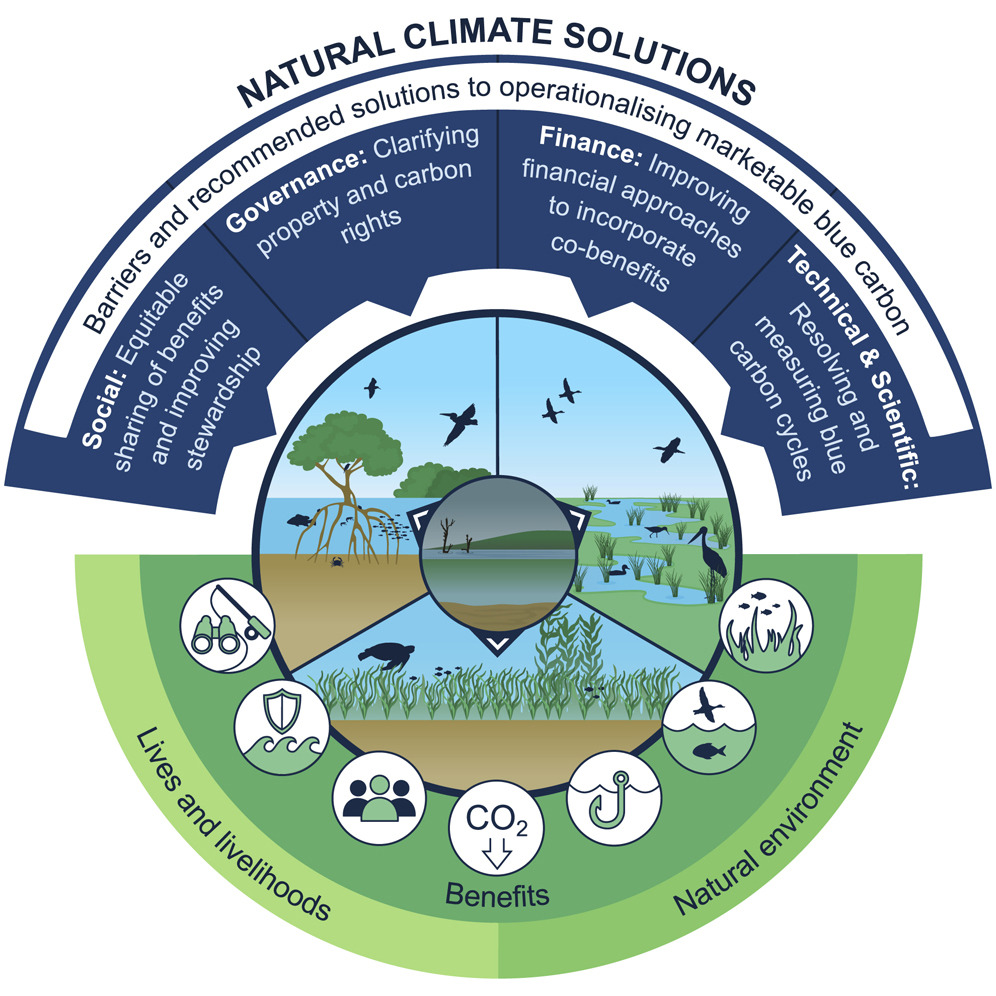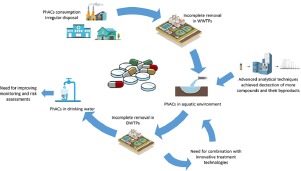An Article in support of all SDGS, particularly SDGs 4, 13, and 17, assessing the interlinkages between the 17 SDGs and climate change.
Marine plankton occur throughout the ocean and are major functional organisms involved in nutrient production and transfer. This paper surveys the global, sunlit ocean and recovers new genomes of species that are still uncultured and uncharacterized. This highlights the magnitude of yet unexplored ecology and diversity that remains to be discovered within the world’s oceans.
This article proposes a feasible framework to operate a global market of blue carbon, which helps to mitigate climate change.
Elsevier,
Microbial Consortium and Biotransformation for Pollution Decontamination, Volume 1, 1 January 2022
This chapter aligns with Goal 6: Clean water and sanitation and Goal 3: Good health and well-being by arguing that SW resources, aquatic ecosystems, and unsuccessfully treated wastewater on water courses must be effectively treated to prevent hostile health risks that have long-term as well as short-term effects on human health.
Elsevier,
Microbial Consortium and Biotransformation for Pollution Decontamination, Volume 1, 1 January 2022
This chapter aligns with Goal 6: Clean water and sanitation, Goal 3: Good health and well-being, and Goal 14: Life below water by summarizing different types of wastewater, its effects on freshwater ecosystem, and remedies to reduce the effect of these effluents on freshwater ecosystem and indirectly on humans.
Water pollution is the most serious problem threatening global water resources. The release of both natural and anthropogenic factors in the aquatic environment is affecting the quality of water bodies, with Contaminants of Emerging Concern (CECs) being one of the major issues. In recent years, the availability of robust and sensitive analytical methods has allowed the detection and identification of a wide variety of pollutants.
Providing affordable access to enough healthy and safe food for an ever-more-affluent and growing world population has become more challenging in the face of climate change, rising income inequality and a more uncertain global trade environment. Agriculture is expected to contribute more, but is under pressure in both high-income and developing countries to do so more sustainably and inclusively. This paper reviews the roles of food policy in this changing setting.
This Practice Note from LexisPSL explains what the UN Global Compact is and how it interacts with issues relating to business and human rights. It also summarises the key pledges and principles of the UN Global Compact, the UN Sustainable Development Goals, how organisations can sign up and the annual reporting requirements. The UN Global Compact is a vital vehicle for advancing SDG 17.16 to enhance the global partnership for sustainable development.
Since the first-ever tax on junk foods was passed in 2014 the same-day purchasing patterns and trends on the Navajo Nation have improved and more than one-third of shoppers who were aware of the Healthy Diné Nation Act (HDNA) legislation attributed healthier shopping habits to the legislation, particularly related to beverages.
Exercise to Prevent and Manage Chronic Disease Across the Lifespan, 2022, Pages 413-421
This book chapter advances SDG #3 and #10 by outlining the pathophysiology associated with Alzheimer’s disease and provide an overview of the impact of exercise programs on cognition, physical functional abilities, behavioral, and psychological symptoms and quality of life.



